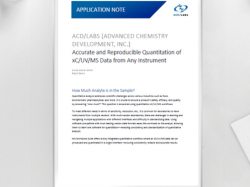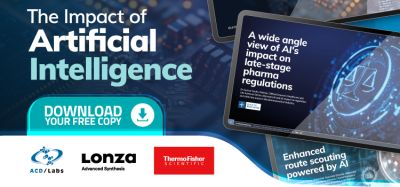83% of life science leaders believe blockchain will be adopted within 5 years
Posted: 27 June 2017 | The Pistoia Alliance | No comments yet
Just under a quarter (22%) of life science companies already using or experimenting with blockchain, but industry collaboration over security and storage standards is needed…


The Pistoia Alliance, a global, not for profit alliance that works to lower barriers to innovation in life sciences R&D is calling on the pharmaceutical and technology industries to support greater collaboration around blockchain initiatives. According to a survey of senior pharmaceutical and life science leaders conducted by The Pistoia Alliance, interest in blockchain is high – with a significant 83% expecting blockchain to be adopted in under five years. The Pistoia Alliance is therefore urging stakeholders to collaborate on the creation of industry-wide data sharing standards during this early adoption phase. Such standards will improve security and render patients more likely to share their data with companies; benefiting everyone from researchers to patients, both now and in the future.
As the data deluge in life science grows – thanks to the boom in personal genomics, sequencing power and ancestry services – the storage and security of personal data has become a significant issue. At the same time, pharmaceutical, biotech and research organisations need access to this data to advance huge industry goals; including precision medicine therapies and cures for rare diseases.
Data housing solution
While blockchain offers a potential data housing solution, there are currently several hurdles to its widespread adoption in life sciences. When asked, life science leaders identified the biggest hurdle as regulatory issues (45%), followed by concerns over data privacy (26%). To realise the potential of blockchain, the industry will need to work together to overcome these barriers.
“We are entering a future where individuals have cheap and ready access to their genomic profile or ancestral history, for as little as $100,” commented Steve Arlington, President of The Pistoia Alliance.
“The potential of this data to advance research and development efforts is huge. But this potential will only be realised if the industry can work out how to safely and securely store and share sensitive data. Right now, blockchain is a technology originally created for use in the financial services industry, but by working together, the life sciences industry can take advantage of its secure attributes. The Pistoia Alliance was formed to foster collaboration between the life sciences industry and its stakeholders in other sectors – our aim is to support our members’ blockchain initiatives and provide a forum for such partnership.”
Supporting the supply chain
When it comes to use cases of blockchain in pharmaceuticals and healthcare, one possible application is in supporting the supply chain by ensuring an auditable trail to safeguard drug provenance. More than two thirds (68%) of pharmaceutical and life science leaders believe blockchain will have the greatest impact in this area. This is followed closely by using blockchain to store medical records, including genomic data – where 60% believe blockchain will have the greatest impact.
Genomic data is the fastest growing dataset in the world; recent analysis found it would take 7.3 zettabytes) of data to store the genomes of the global population. Genomic data could be stored in ‘blocks’ on a blockchain, but standards for how it is stored and then shared securely will be essential – here is where the Pistoia Alliance sees great opportunity for collaboration.
“The dynamics of power are changing and patients today have become more empowered – we are seeing a shift to a transformative age of ‘the patient will see you now’,” commented Nick Lynch, consultant for The Pistoia Alliance.
“In the future, patients will even have the possibility of monetising access to their personal data, giving individual companies access to ‘blocks’ of their data for research purposes. This shift – where patients have access to and control over how their data is used – is changing the entire model of healthcare from early R&D all the way to frontline delivery. Ultimately, patients will want to manage their personal data the way they manage their bank accounts. The life sciences industry must collaboratively explore solutions that enable patients to do this, while ensuring they retain access to data for their own R&D efforts.”









